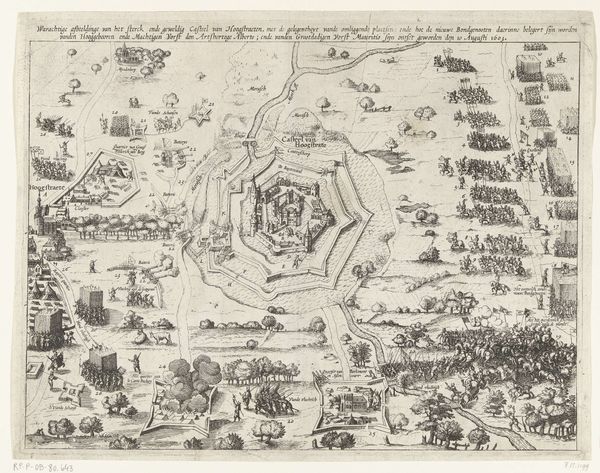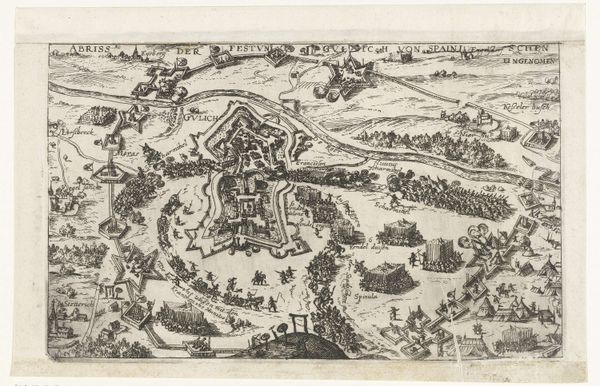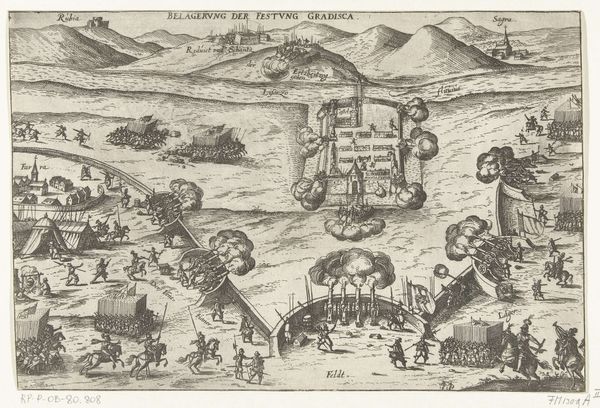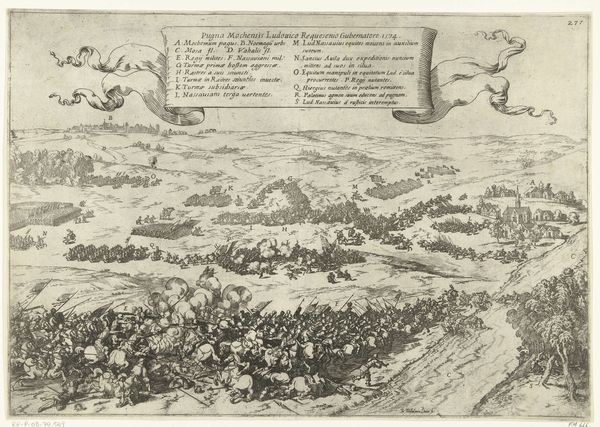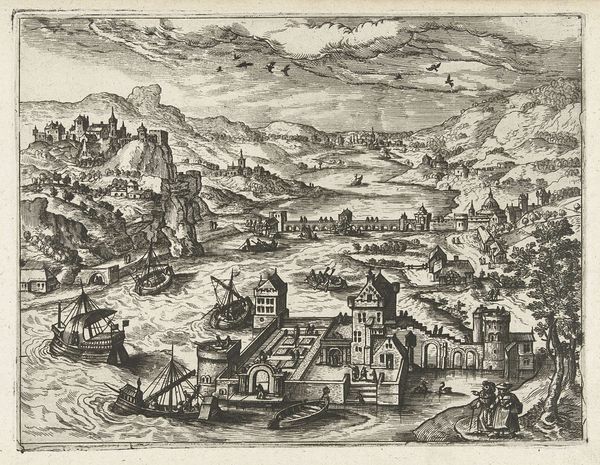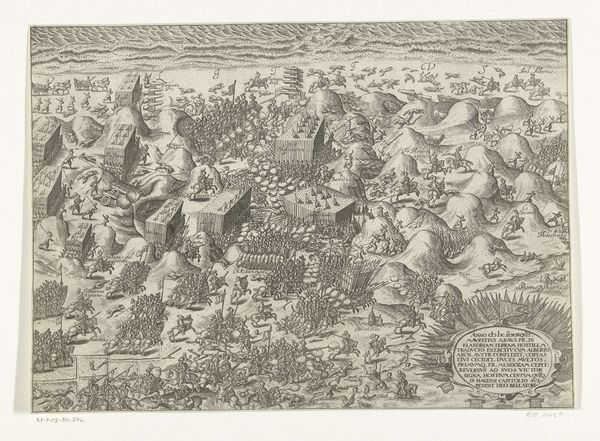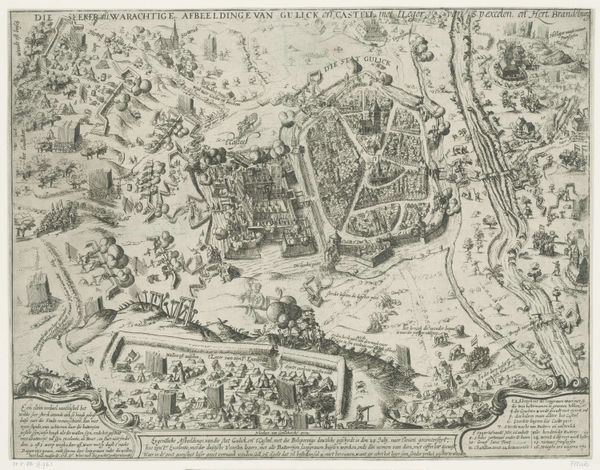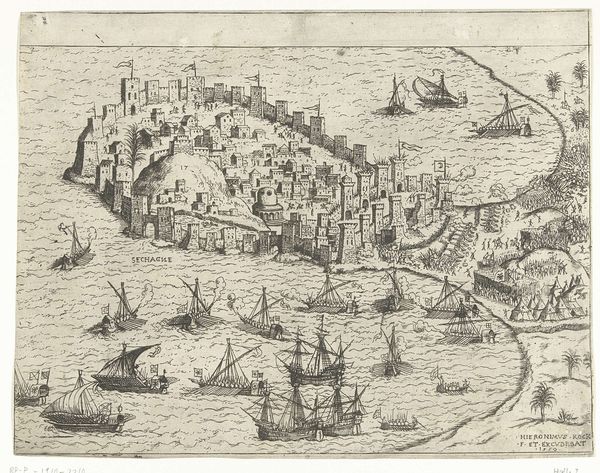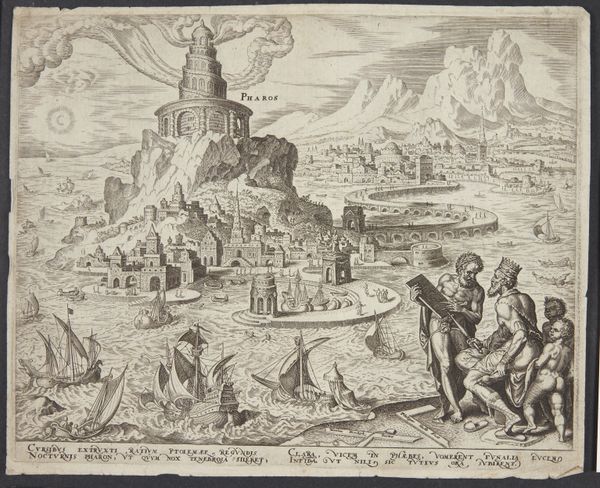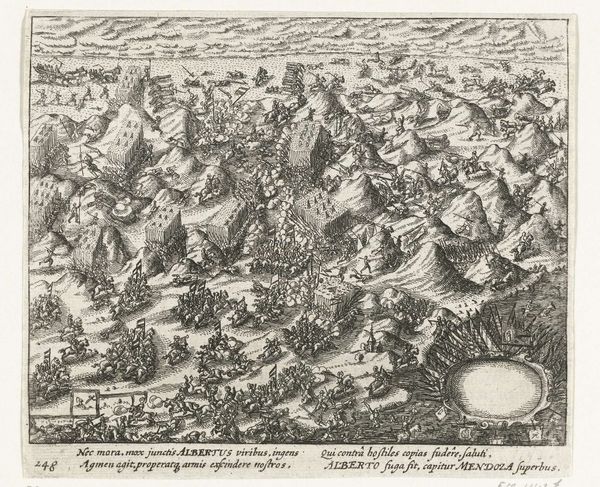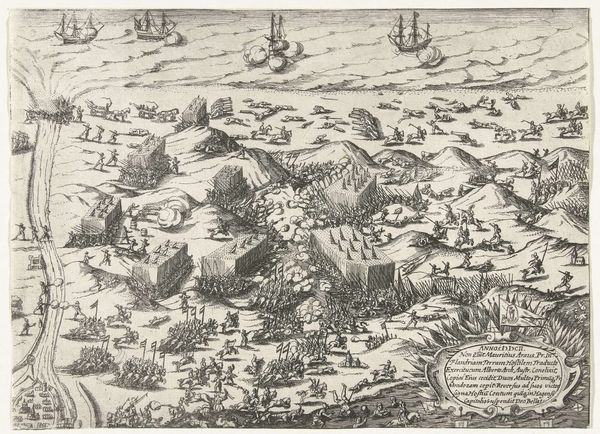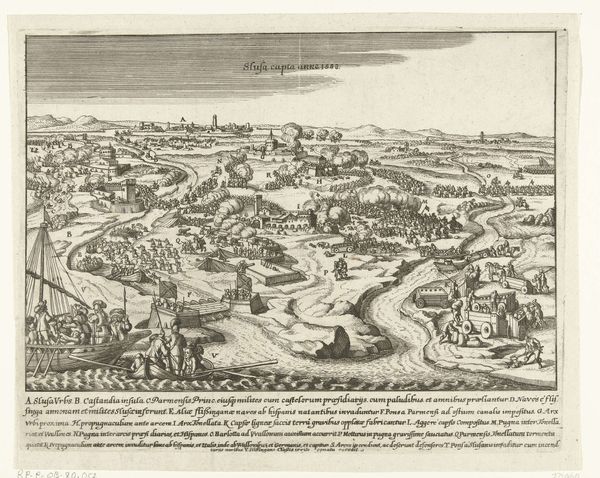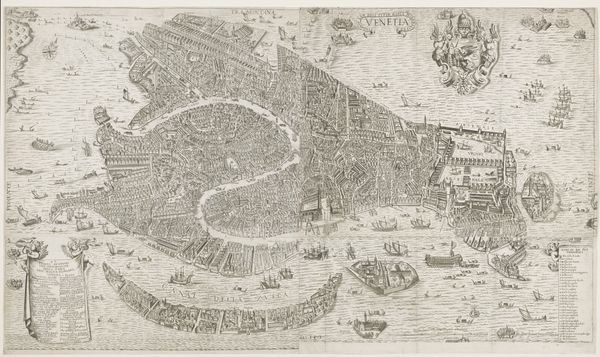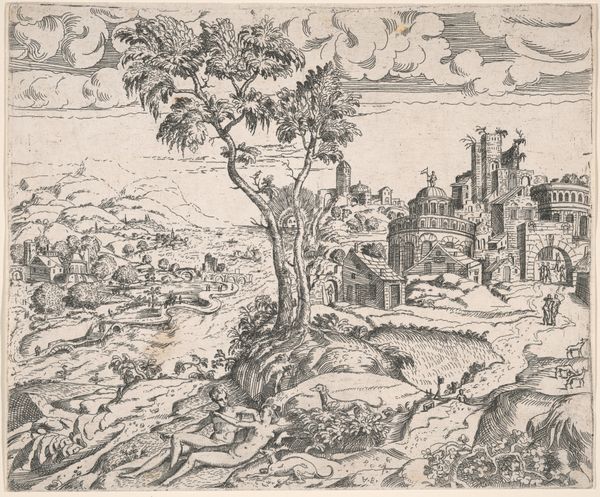
drawing, print, etching, ink, pen
#
landscape illustration sketch
#
drawing
#
ink drawing
#
allegory
#
narrative-art
#
pen drawing
#
mechanical pen drawing
# print
#
pen illustration
#
pen sketch
#
etching
#
landscape
#
ink
#
ink drawing experimentation
#
pen-ink sketch
#
pen work
#
sketchbook drawing
#
pen
#
cityscape
#
history-painting
#
northern-renaissance
Dimensions: height 322 mm, width 382 mm
Copyright: Rijks Museum: Open Domain
Curator: This etching, “The Fall of the Tower of Babel,” was created by Cornelis Anthonisz. in 1547, and we have it here at the Rijksmuseum. Editor: Wow, just looking at it, I feel a dizzying sense of ambition collapsing under its own weight. The sheer detail in the tower is impressive, but all I see is chaos and ruin! Curator: Absolutely, Anthonisz. uses this iconic biblical story to comment on the hubris of humankind, its insatiable appetite for progress and architectural achievement. Babel was more than a construction project; it was a challenge to divine authority. Editor: It's interesting, though. I see those tiny figures scrambling amidst the wreckage—there's still activity. Destruction is often fertile ground for rebuilding, physically and maybe even metaphorically, culturally? Curator: Precisely! Post-Reformation Netherlands was grappling with shifting power dynamics, religiously and politically. Anthonisz's print acts as a cautionary tale, reminding viewers of the potential consequences when ambition overshadows prudence and the common good. These historical anxieties mirror contemporary debates surrounding development and urbanization, offering a surprisingly relevant socio-political commentary. Editor: Well, speaking of urban planning, that original design… ambitious isn’t even the word for it. Look at those cascading tiers! What were they even going for with the top level? It makes me wonder what new impossible structures we might dare to build these days, and what price we may pay for their success. Curator: And what are our responsibilities in thinking about such ambitions? Yes, that’s really the heart of the matter here, the price and responsibility are very clearly articulated. Editor: Food for thought… or maybe just building blocks for the next generation. Thanks for helping me to consider what Cornelis Anthonisz. was attempting to illustrate in his etching. Curator: It's a potent reminder that progress, if untempered, can crumble into the very chaos it seeks to overcome. Thank you.
Comments
No comments
Be the first to comment and join the conversation on the ultimate creative platform.
